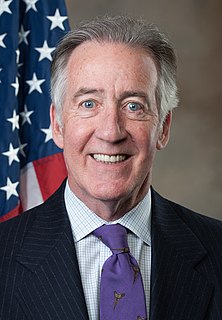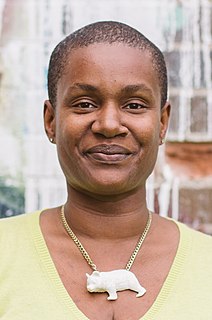A Quote by John Landgraf
I hope that most of us believe that we actually would all benefit from living in a more equitable society. If that's not happening, we're squandering human potential.
Related Quotes
Well, equity matters. I hope that most of us believe that we actually would all benefit from living in a more equitable society. If that's not happening, we're squandering human potential. We want to make the best television possible. We should be drawing on the entire available pool of storytellers and directors, and we should be expanding that pool and trying to hire the very, very, very best people. That's our job.
[H]uman beings...make a limit in their mind of what their potential is. They decide, "I've been told this," or "this is what society tells me," or they've been made to believe something. If every human being actually threw away those thoughts...the potential of human beings is great, it's huge, compared to what they actually think of themselves.
I've always wondered what it would be like if the Messiah, or Christ Returned, were actually alive and living in our society; who would that person be, how we would identify them, how would they live and what would they believe in, how would society react to them? I decided to try and tell my idea of that story.
We are beginning to realize that even the most fortunate people are living far below capacity, and that most human beings develop not more than a small fraction of their potential mental and spiritual efficiency. The human race, in fact, is surrounded by a large area of unrealized possibilities, a challenge to the spirit of exploration.
The classics of Marxism talked of communism as a society to which a modern society should aspire, a society truly fair, where the relations of monetary exchange were not the priority but one wher the people's needs could be satisfied, and where people would not be worth more according to how much monetary wealth they acquired. Instead their value would be based on their contribution to society as a whole. It would be a society without class that would accept people based on their capabilities and their potential to contribute to that society.
None of us need one more person bashing or pointing out where we have failed or fallen short. Most of us are already well aware of the areas in which we are weak. What each of us does need is family, friends, employers, and brothers and sisters who support us, who have the patience to teach us, who believe in us, and who believe we’re trying to do the best we can, in spite of our weaknesses. What ever happened to giving each other the benefit of the doubt? What ever happened to hoping that another person would succeed or achieve? What ever happened to rooting for each other?
I believe that to meet the challenge of our times, human beings will have to develop a greater sense of universal responsibility. We must all learn to work not just for our own self, family, or nation but for the benefit of all humankind. Universal responsibility is the key to human survival. It is the best foundation for world peace, the equitable use of natural resources, and through concern for future generations, the proper care of the environment.
Idealists are people who believe in the potential of human nature for transformation. . . . The most essential attribute of human nature is its mutability and freedom from instinct . . . it is always within our power to change our nature. So it is actually the idealists who are on the mark and the realists who are off base.
Nature never gives to a living thing capacities not particularly meant for its benefit and use. If Nature gives to us capacities to believe that we have a Creator whom we never saw, of whom we have no direct proof, who is kind and good and tender beyond all that we know of kindness and goodness and tenderness on earth, it is because the endowment of capacities to conceive a Being must be for our benefit and use; it would not be for our benefit and use if it were a lie.

































